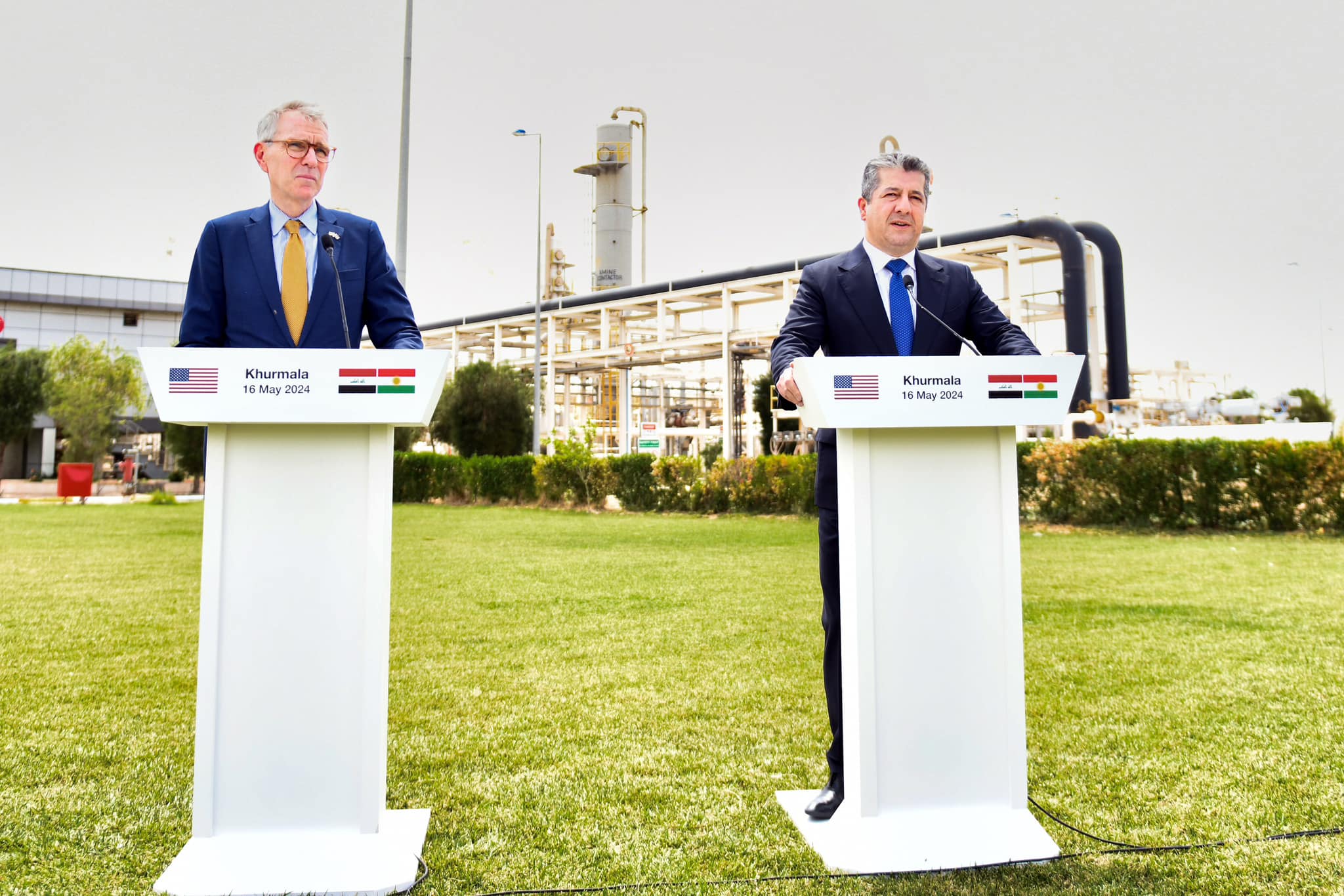US direct talks with Turkey, Iraq ongoing to resume Kurdistan oil exports: Spox

ERBIL, Kurdistan Region - US State Department Principal Deputy Spokesperson Vedant Patel said on Thursday that Washington continues its direct rounds of talks with Ankara, Baghdad and Erbil over the resumption of Kurdistan Region’s oil exports.
“We continue to engage directly with officials in Baghdad, officials in Ankara, officials in Erbil as well as US companies that are affected by stoppage on reopening the ITP [Iraq-Turkey pipeline] pipeline, developing multiple rounds for Iraqi energy to flow into global markets. It is a common interest of ours,” Patel told Rudaw’s Diyar Kurda during a press briefing on Thursday.
Oil exports from the Kurdistan Region through the Iraq-Turkey pipeline have been halted since March 2023 after a Paris-based arbitration court ruled in favor of Baghdad that Ankara had breached a 1973 pipeline agreement by allowing Erbil to begin independent oil exports in 2014.
Despite several talks between Kurdish, Iraqi, and Turkish officials, exports have yet to resume and many international oil companies have suspended production, resulting in billions of dollars in lost revenue.
The US assistant secretary of state for energy resources on Thursday visited power plants and refineries in Erbil province, likening the Kurdistan Region to his country’s oil-rich Oklahoma.
“I must say today’s visit has left a powerful impression on me in terms of the energy abundance of this region… I said in our meeting that this is like a little Oklahoma. As I look at the landscape here, it reminds me so much of some of our oil producing regions in the United States,” Geoffrey Pyatt said during a joint press conference with Kurdistan Region Prime Minister Masrour Barzani at Khurmal power and refinery facilities in Erbil province.

Pyatt and Barzani also visited the Mass Global power plant in the province.
“We discussed advancing energy sector collaboration, opportunities to invest in clean and renewable energy projects, and plans to improve the electricity sector for Iraq and the Kurdistan Region,” Barzani said in a statement.
“We both agreed on the importance of restarting Kurdistan's oil exports, as their suspension has resulted in significant economic loss for Iraq in general. After the meeting, we visited the Mass Global power plant in Pirdawood and the Khurmala power and refinery facilities operated by Kar Group in Erbil,” he added.
Pyatt met with Iraqi authorities, including Prime Minister Mohammed Shia’ al-Sudani, in Baghdad the previous day.In this cabinet, we have:
— Masrour Barzani (@masrourbarzani) May 16, 2024
• Doubled gas production
• Built the biggest flare-to-power plant in the Middle East
American companies and @DFCgov financing have played a crucial role.@AsstSecENR and I agreed on the need to resume oil exports. The stoppage has cost over $15bn. pic.twitter.com/P7VfOvWs8x
US ambassador to Iraq said in a post on X later in the day that Sudani and Pyatt discussed Baghdad’s “progress towards implementing Iraq’s energy strategy and how it can become autonomous, engage neighbors for electricity interconnections that benefit Iraq, and meet the growing demands of Iraqis who seek a higher standard of living.”
Pyatt’s visit “reflects the important strides that we believe Iraq has made to secure its energy independence. And these efforts are important for Iraq to end Iranian natural gas imports and to meet its climate commitments,” Patel added in his comment to Rudaw.
“Assistant Secretary Pyatt is also encouraging the federal government to better integrate the IKR’s [Iraqi Kurdistan Region’s] gas resources into its overall energy independence plans. We believe that Iraq is making progress and over the past decade Iraq has doubled its energy generation,” he added.
The Association of the Petroleum Industry of Kurdistan (APIKUR), an association of international oil companies, on Wednesday welcomed the top American official’s visit to Iraq.
Myles B. Caggins, APIKUR spokesperson, was cited in a statement by the association as saying Pyatt’s visit to Baghdad and Erbil “underscore the importance of immediate and cooperative action by all stakeholders to restore exports through the Iraq-Türkiye pipeline.”
“APIKUR’s member companies remain eager to resolve the export impasse and would welcome an invitation to participate in the process,” he added.
